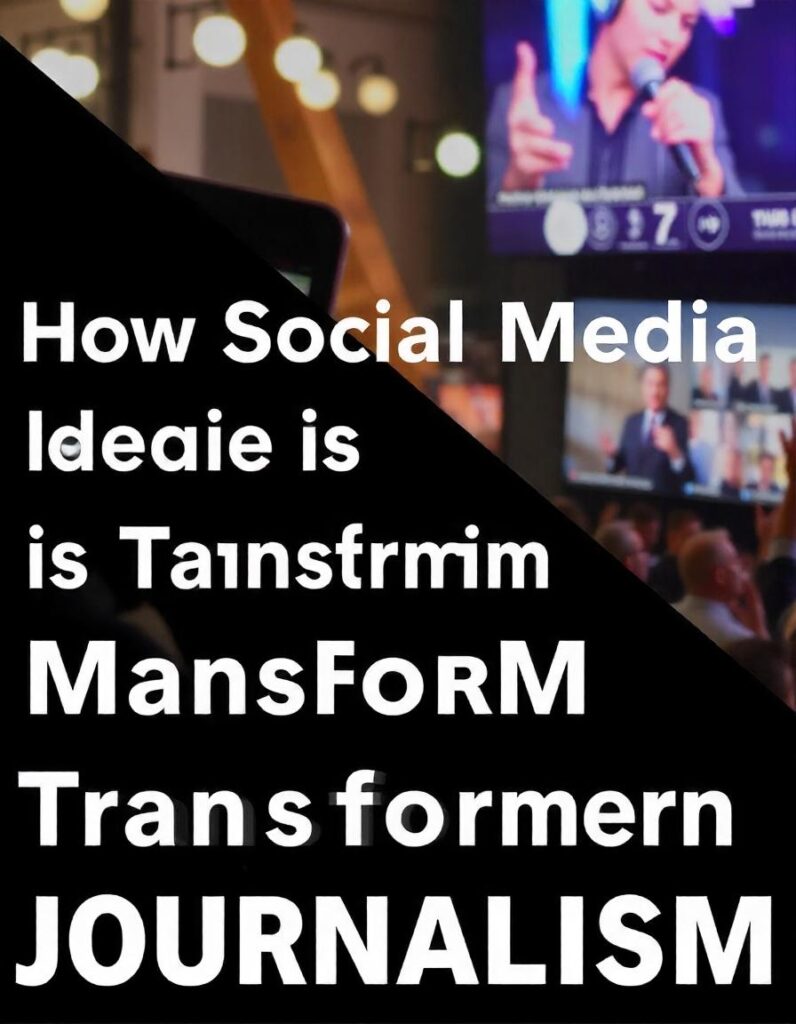
The rise of social media has significantly impacted the world of journalism, revolutionizing the way news is reported and consumed. With platforms like Twitter, Facebook, and Instagram at our, information spreads faster than ever before. Traditional has had to adapt and evolve, finding new ways to stay relevant in this digitally era.
One of the most noticeable changes brought about by social media is the speed at which news is delivered. Gone are the days of waiting for the morning paper or the evening news broadcast. Now, breaking news can be accessed in real-time through a tweet, a live video, or a push notification on your smartphone. This immediacy has forever altered the nature of reporting, as journalists must now strive to be the first to break a story, often sacrificing accuracy and thorough fact-checking in the process.
However, with these advancements come challenges that need to be addressed. Social media’s impact on neutral reporting has become a concern, as misinformation and fake news can easily spread like wildfire. When individuals share unverified information, it can lead to public panic and confusion, undermining the credibility of traditional journalism.
To mitigate the negative impacts of social media on neutral reporting, it is crucial for journalists to maintain their commitment to solid journalistic standards. They must ensure that they verify information from reliable sources before reporting and avoid sensationalism or bias. By prioritizing accuracy and objectivity, journalists can counteract the misleading narratives that often proliferate on social media.
Moreover, the importance of journalistic standards cannot be overstated in the age of social media. As social media users become accustomed to consuming news in bite-sized pieces, clickbait headlines, and sensationalized stories, the need for credible, well-researched journalism becomes even more crucial. Journalists must hold themselves accountable to ethical guidelines and strive to uphold the truth despite the temptation to prioritize clicks and shares.
Additionally, social media has given rise to citizen journalism, allowing anyone with a smartphone and internet access to become a reporter or commentator. While this can bring diverse perspectives and immediate coverage of events, it also blurs the lines between professional journalism and personal opinion. As such, it becomes crucial for news consumers to decipher reliable sources from unreliable ones and understand the difference between journalism and conjecture.
In conclusion, the impact of social media on modern journalism is undeniable. It has transformed the way news is reported and consumed, allowing for unprecedented immediacy and access. However, it has also presented challenges, such as the spread of misinformation and the erosion of neutral reporting. To mitigate these negative consequences, journalists must rely on solid journalistic standards rooted in accuracy, objectivity, and ethical reporting. By doing so, they can navigate the evolving landscape of social media while maintaining the integrity and credibility of their profession.
Click here for more Article : https://socialinfozone.com/

Great insights on the dual impact of social media on journalism!
We truly appreciate you taking the time to share your thoughts with us. Your feedback and insights help us grow and create even better content for you. It’s amazing to have such a supportive community like you engaging with our articles.
Keep sharing your views – we’re always eager to hear from you!
Warm regards,
The SOCIALINFOZONE Team